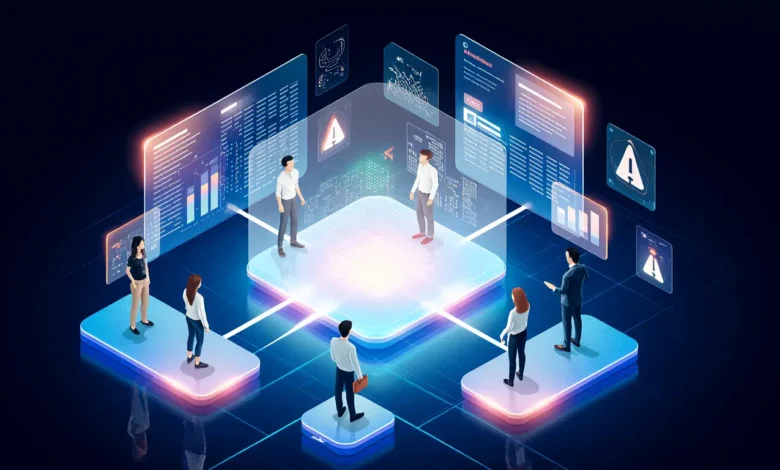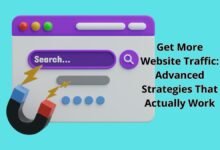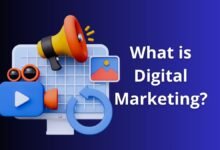The Future of Marketing Automation: How AI Is Redefining Customer Engagement in 2025

Marketing Automation is transforming the way global brands connect with their audiences in 2025. As artificial intelligence (AI) continues to evolve, businesses are shifting from traditional marketing workflows to smart, adaptive systems that learn, predict, and personalize engagement like never before.
table of contents
How Marketing Automation Is Redefining Customer Engagement
In 2025, marketing automation has become more than just a convenience—it’s the core of digital strategy. With AI tools integrated into every step of the marketing funnel, businesses can now deliver hyper-personalized experiences that respond to real-time customer behaviors.
AI-driven automation doesn’t just send scheduled emails or retarget ads—it understands the context, emotional tone, and intent behind user interactions. This shift is reshaping the foundation of how companies build trust and loyalty in a digital-first economy.
Get More Website Traffic: Advanced Strategies That Actually Work
1. The Rise of Predictive Marketing
Predictive analytics is now one of the most powerful tools in marketing automation. Instead of reacting to customer actions, AI predicts what users want next based on their browsing patterns, purchase history, and even micro-interactions on websites or apps.
Platforms like HubSpot, Salesforce, and Marketo have integrated predictive engines that enable marketers to anticipate customer needs before they’re even expressed. This predictive capacity leads to higher engagement, reduced churn, and smarter spending on ad campaigns.
2. Hyper-Personalization Through AI
Traditional segmentation—by age, gender, or geography—is no longer enough. AI-driven automation enables hyper-personalization, which creates one-to-one marketing experiences.
For instance, an AI-powered email campaign can adjust tone, product recommendations, and even send time based on individual behavior. Chatbots enhanced by natural language processing (NLP) can maintain personalized conversations that feel human, increasing conversion rates and brand satisfaction.
In 2025, personalization is not an advantage—it’s an expectation.
3. The Shift Toward Conversational Marketing
The future of marketing automation is conversational. Customers today expect instant, meaningful interactions, and AI-driven chatbots are becoming the main bridge between brands and consumers.
Unlike older automated systems, new-generation bots don’t just provide pre-set responses—they learn from each conversation, adapting their tone and understanding user intent more accurately. This has made customer service an integral part of marketing strategy itself.
4. Integrating AI With Omnichannel Campaigns
The days of single-channel marketing are over. Today’s businesses must be present across multiple digital touchpoints—social media, email, search, SMS, and voice assistants.
Marketing automation powered by AI unifies these channels into a seamless experience. For example, an AI system can track a customer from an Instagram ad to a website purchase and then follow up via personalized email—all automatically.
This omnichannel integration ensures consistency, boosts brand visibility, and maximizes engagement without human intervention.
5. Data Ethics and Transparency in Automation
As marketing automation becomes smarter, ethical concerns are taking center stage. Consumers are more aware than ever of how their data is collected and used.
In 2025, successful brands will not only rely on AI to deliver precision marketing but will also build transparent data ecosystems. Customers now reward brands that respect privacy, disclose data usage, and allow control over personal information.
Building trust is as crucial as building algorithms.
6. AI and Emotional Intelligence in Marketing
One of the most fascinating shifts in marketing automation is the integration of emotional intelligence (EI). AI tools can now analyze tone, sentiment, and engagement quality to adjust content dynamically.
For example, if a customer expresses frustration in a chat, the AI can detect the emotion and respond empathetically, improving satisfaction and long-term retention. This emotional awareness is giving automation a more “human” edge—something that purely manual marketing could never scale.
The Business Impact: Efficiency Meets Creativity
By automating repetitive tasks—like data entry, ad targeting, and lead nurturing—companies free their marketing teams to focus on creative and strategic work. The blend of human creativity with machine precision is now the formula for success.
In fact, brands adopting full-scale marketing automation systems report up to a 45% increase in conversion rates and 30% higher customer retention compared to manual workflows. The numbers confirm what we already know: automation doesn’t replace marketers—it empowers them.
The Future Outlook: Adaptive, Ethical, and Human-Centered
As AI continues to evolve, marketing automation will move toward adaptive systems that understand not just data but people. Future tools will anticipate emotional states, optimize creative decisions, and refine content delivery in milliseconds.
The marketing of 2025 and beyond will no longer be about who reaches the customer first, but who understands them best.
Conclusion
The fusion of AI and marketing automation marks a turning point for global businesses. The future isn’t just automated—it’s intelligent, empathetic, and profoundly human-centered. Companies that master this balance will not only thrive in 2025 but set the standard for digital engagement in the next decade.
FAQ
1. What is marketing automation?
Marketing automation is the use of software and AI to manage repetitive marketing tasks—like email campaigns, social media posting, and ad targeting—to improve efficiency and personalization.
2. How is AI transforming marketing automation in 2025?
AI enables predictive targeting, real-time personalization, and adaptive customer engagement, turning data into actionable insights.
3. Can small businesses use marketing automation?
Yes, modern tools like HubSpot, Mailchimp, and Zoho offer affordable automation options tailored to startups and small businesses.
4. Is automation replacing human marketers?
No. It’s enhancing human creativity by automating repetitive tasks, allowing marketers to focus on strategy and storytelling.
5. What’s next for marketing automation?
The next phase will focus on emotional AI—understanding human sentiment and delivering personalized, ethical engagement.
Discover more from Feenanoor
Subscribe to get the latest posts sent to your email.

